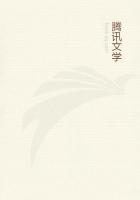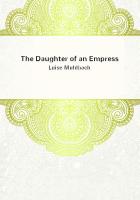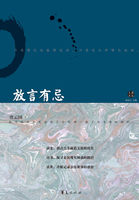SOCRATES: But if this is a battle of names, some of them asserting that they are like the truth, others contending that THEY are, how or by what criterion are we to decide between them? For there are no other names to which appeal can be made, but obviously recourse must be had to another standard which, without employing names, will make clear which of the two are right; and this must be a standard which shows the truth of things.
CRATYLUS: I agree.
SOCRATES: But if that is true, Cratylus, then I suppose that things may be known without names?
CRATYLUS: Clearly.
SOCRATES: But how would you expect to know them? What other way can there be of knowing them, except the true and natural way, through their affinities, when they are akin to each other, and through themselves? For that which is other and different from them must signify something other and different from them.
CRATYLUS: What you are saying is, I think, true.
SOCRATES: Well, but reflect; have we not several times acknowledged that names rightly given are the likenesses and images of the things which they name?
CRATYLUS: Yes.
SOCRATES: Let us suppose that to any extent you please you can learn things through the medium of names, and suppose also that you can learn them from the things themselves--which is likely to be the nobler and clearer way; to learn of the image, whether the image and the truth of which the image is the expression have been rightly conceived, or to learn of the truth whether the truth and the image of it have been duly executed?
CRATYLUS: I should say that we must learn of the truth.
SOCRATES: How real existence is to be studied or discovered is, I suspect, beyond you and me. But we may admit so much, that the knowledge of things is not to be derived from names. No; they must be studied and investigated in themselves.
CRATYLUS: Clearly, Socrates.
SOCRATES: There is another point. I should not like us to be imposed upon by the appearance of such a multitude of names, all tending in the same direction. I myself do not deny that the givers of names did really give them under the idea that all things were in motion and flux; which was their sincere but, I think, mistaken opinion. And having fallen into a kind of whirlpool themselves, they are carried round, and want to drag us in after them. There is a matter, master Cratylus, about which I often dream, and should like to ask your opinion: Tell me, whether there is or is not any absolute beauty or good, or any other absolute existence?
CRATYLUS: Certainly, Socrates, I think so.
SOCRATES: Then let us seek the true beauty: not asking whether a face is fair, or anything of that sort, for all such things appear to be in a flux; but let us ask whether the true beauty is not always beautiful.
CRATYLUS: Certainly.
SOCRATES: And can we rightly speak of a beauty which is always passing away, and is first this and then that; must not the same thing be born and retire and vanish while the word is in our mouths?
CRATYLUS: Undoubtedly.
SOCRATES: Then how can that be a real thing which is never in the same state? for obviously things which are the same cannot change while they remain the same; and if they are always the same and in the same state, and never depart from their original form, they can never change or be moved.
CRATYLUS: Certainly they cannot.
SOCRATES: Nor yet can they be known by any one; for at the moment that the observer approaches, then they become other and of another nature, so that you cannot get any further in knowing their nature or state, for you cannot know that which has no state.
CRATYLUS: True.
SOCRATES: Nor can we reasonably say, Cratylus, that there is knowledge at all, if everything is in a state of transition and there is nothing abiding; for knowledge too cannot continue to be knowledge unless continuing always to abide and exist. But if the very nature of knowledge changes, at the time when the change occurs there will be no knowledge; and if the transition is always going on, there will always be no knowledge, and, according to this view, there will be no one to know and nothing to be known: but if that which knows and that which is known exists ever, and the beautiful and the good and every other thing also exist, then I do not think that they can resemble a process or flux, as we were just now supposing. Whether there is this eternal nature in things, or whether the truth is what Heracleitus and his followers and many others say, is a question hard to determine; and no man of sense will like to put himself or the education of his mind in the power of names: neither will he so far trust names or the givers of names as to be confident in any knowledge which condemns himself and other existences to an unhealthy state of unreality; he will not believe that all things leak like a pot, or imagine that the world is a man who has a running at the nose. This may be true, Cratylus, but is also very likely to be untrue; and therefore I would not have you be too easily persuaded of it. Reflect well and like a man, and do not easily accept such a doctrine; for you are young and of an age to learn. And when you have found the truth, come and tell me.
CRATYLUS: I will do as you say, though I can assure you, Socrates, that I have been considering the matter already, and the result of a great deal of trouble and consideration is that I incline to Heracleitus.
SOCRATES: Then, another day, my friend, when you come back, you shall give me a lesson; but at present, go into the country, as you are intending, and Hermogenes shall set you on your way.
CRATYLUS: Very good, Socrates; I hope, however, that you will continue to think about these things yourself.













